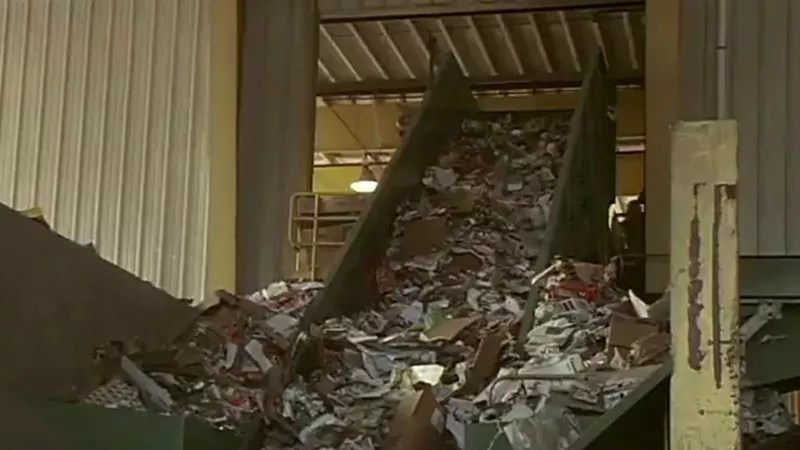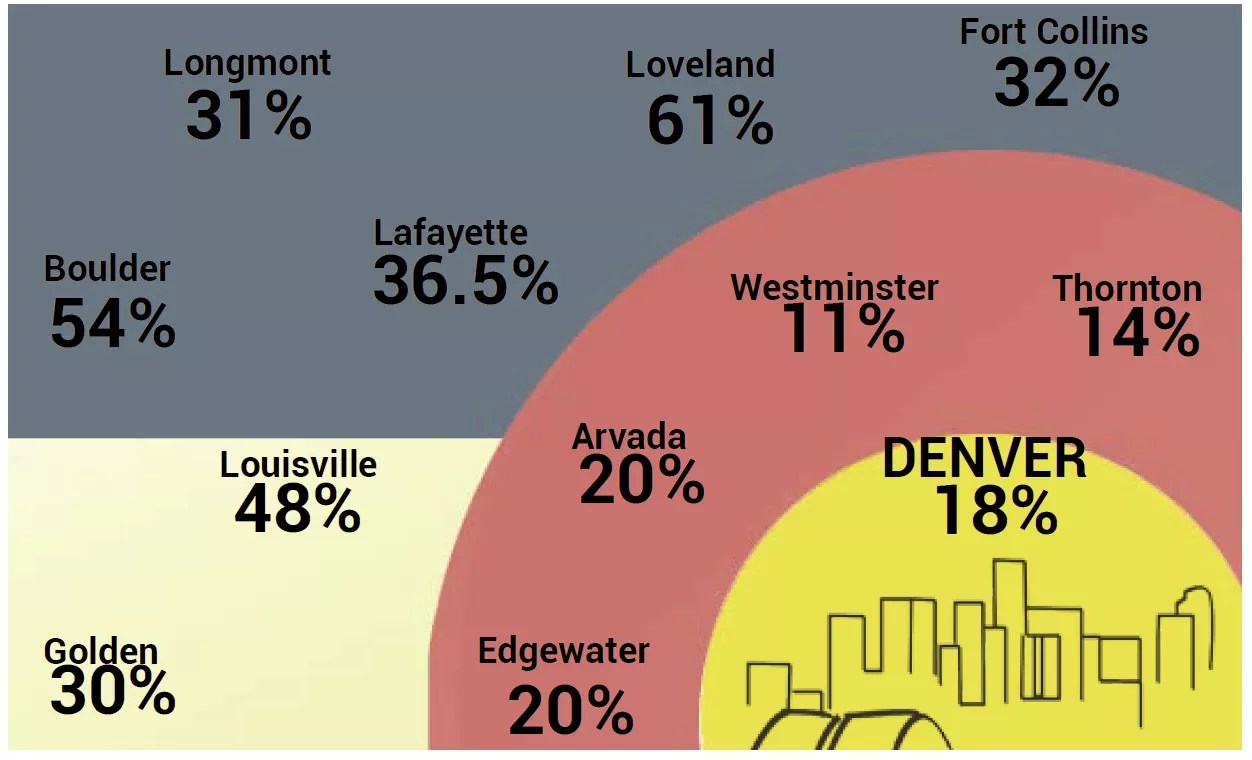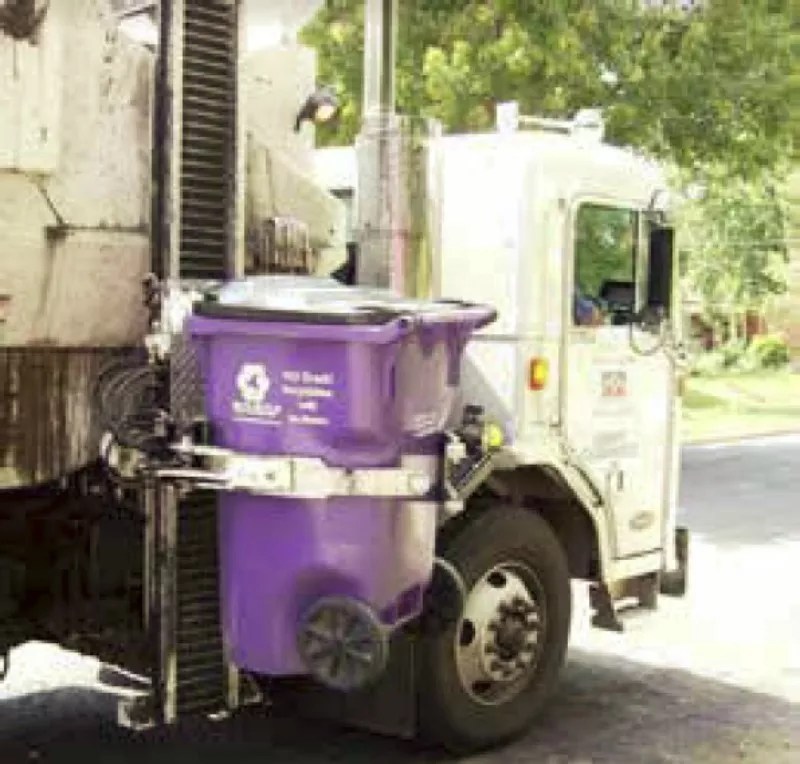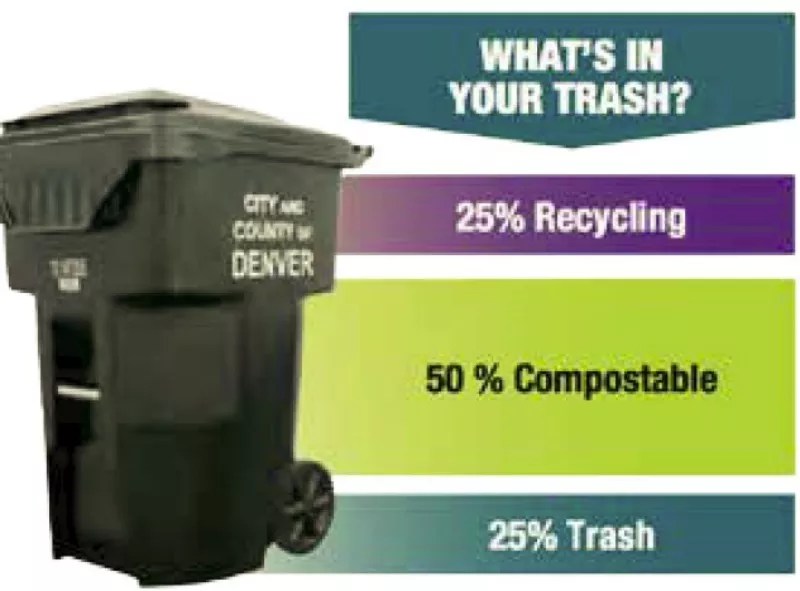
Eco-Cycle via YouTube

Audio By Carbonatix
Most Denverites like to think of themselves as environmentally friendly. But there’s plenty of evidence to the contrary.
A report from Eco-Cycle on view below reveals that Denver’s recycling rate is 18 percent – one of the worst on the front range and exceedingly mediocre on a national scale.
“The U.S. recycling average is 35 percent, so we’re at about half of that,” says Kate Bailey, Eco-Cycle Solutions’ program director and co-author of the report. “Colorado as a whole is a pretty poor performer; as a state, we only recycle at about a 12 percent rate. So it’s not a surprise that we’re in the back of the pack. Some states recycle at a rate as high as 50 or 60 percent with goals of 75 or 90 percent.”
Moreover, local efforts to increase Denver’s recycling amount have not always been greeted with open arms. The city has budgeted $3.3 million to up the number of recycling and composting routes and complete the switch from dumpsters to carts by 2018. As Ana Campbell reported in September, this last move is intended to “reduce trash in Denver by making consumers more aware of their waste production and diverting more waste into recycling.” But Campbell’s post generated a huge response from readers who would rather keep the dumpsters whether or not they’re a drag on the recycling rate.

As you can see, there are actually communities in the metro area that recycle at a lower rate than does Denver – but not many.
Courtesy of Eco-Cycle
Not that Bailey or Eco-Cycle communications director Harlin Savage lay all the blame for Denver’s poor recycling performance on residents.
“One of the things we know about recycling is that you need to make it easy and convenient for people, and then they’ll participate,” Bailey notes. “Now, Denver has a couple of challenges. One is that if you live in an apartment, it’s very hard to get recycling service – and one-third of Denver’s housing is apartments. Most single family homes and small-unit buildings of seven units or fewer have recycling, but not all of them; 23 percent of those don’t have access to a recycling bin. And the business sector is pretty far behind as well. Denver doesn’t even know what the recycling rate is for businesses. They’re just beginning to track it now, but it’s expected to be pretty low, because it’s hard for businesses to get services.”
Compounding the problem is what Savage describes as Denver’s “somewhat unusual trash structure. Denver has kind of unwittingly created a system that discourages people from reducing their waste, and there aren’t any financial incentives for people in businesses to recycle right now.”
Bailey elaborates. “If I’m a household in Denver, I don’t pay a direct trash bill. Many of us in other communities get a bill from our city or a trash hauler, much as you get an electrical bill. Now, I could be a resident who produces a lot of trash and I put out three times as much as my neighbor who, let’s say, recycles really well and hardly produces any trash. But we’re going to pay the same rate. With water and electricity, the more you use, the more you pay, and there’s an incentive to use less. But that’s not the case with trash in Denver.”

Eco-Cycle courtesy of Denver Recycles
The same goes for composting.
“The city has a voluntary curbside composting program,” Bailey points out. “Residents can sign up to have yard debris and food scraps composted. But only about 4 percent of residents have signed up because it comes at a cost of $10 per month, while trash pickup is seeming free and unlimited. So we’re charging people to do the right thing and compost when ultimately that’s the behavior we’d like to see throughout the city.”
Another disincentive when it comes to recycling, Savage says, is the low cost in Denver and throughout Colorado for the use of landfills.
“The tipping fees here are low compared to other parts of the country,” she notes. “And even though there are other costs, they are somewhat invisible. If landfills are improperly maintained and contamination becomes enormous, local governments and taxpayers have to pay thousands of dollars to contain and clean up the waste.”

This graphic shows the breakdown of waste in Denver circa 2016.
Courtesy of Eco-Cycle
Regarding the backlash against dumpster replacement, Bailey believes the reaction is understandable.
“Trash is an interesting business,” she allows. “Essentially, this is stuff you don’t want that people are taking away from you – but whenever there’s a change, residents tend to get very upset. We see this nationwide. We applaud the mayor’s office for getting rid of dumpsters and moving toward carts, but we also understand that dumpsters are very easy to use. It’s easy to throw all kinds of things in there, and that makes it very hard to encourage people to recycle. When you have a smaller cart, you think more carefully about what you throw away and if that’s ultimately where it should go. You might have something that could go to Goodwill instead of a giant dumpster – and people take more ownership when they have a personal cart. That’s a big step forward for Denver.”
On the policy side, Bailey continues, “we could make it more convenient for apartments and businesses to have recycling services. More than 20 percent of the U.S. population lives in an area where businesses are required to recycle – and if those are policies rather than direct services that the city could offer, they won’t have a big capital or financial price tag.”
Improving Denver’s recycling rate shouldn’t take forever, Bailey feels. “The city is well-positioned to move forward quickly. The staff is on board and they have a solid plan – and they know they need to take action. This is something we can turn around and take Denver from the back of the pack to the front of the pack pretty quickly. That’s the good news: We can make Denver a success story in the coming years.”
Right now, however, the numbers don’t provide a happy ending. Here’s the Eco-Cycle report.
Recycling a Missed Opportunity to Make Denver More Sustainable